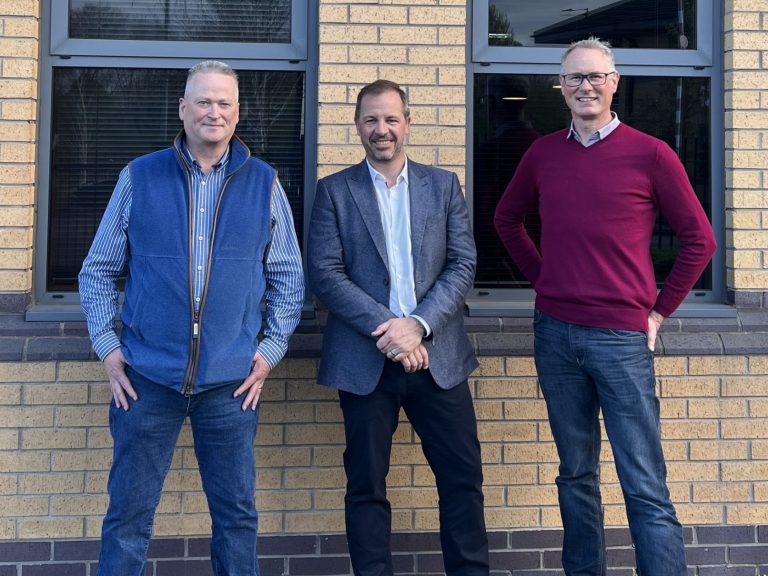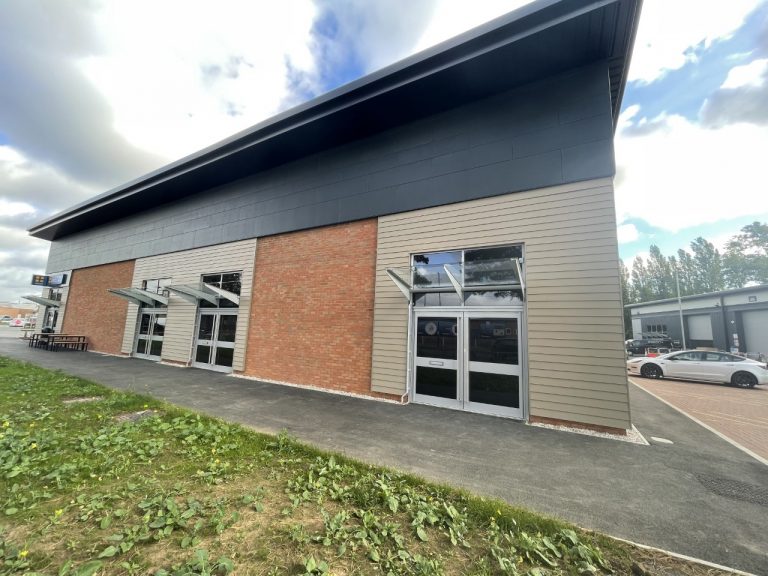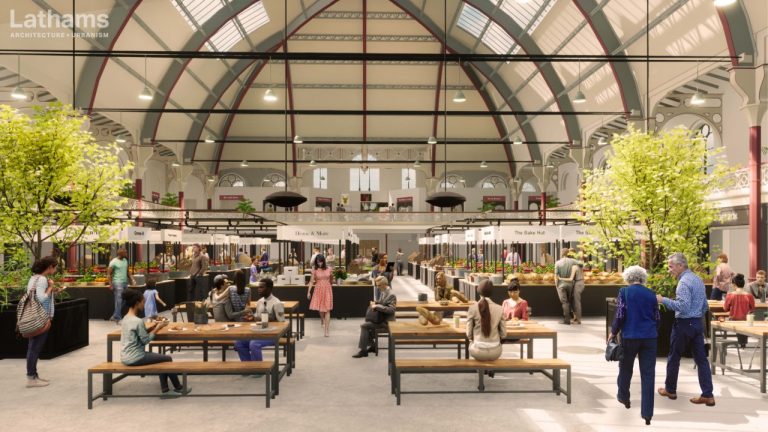IT services company snaps up Derby firm
Final sale completed at Forbes Park
Manufacturer of variable speed drives secures £2.5m investment
Revenues 20% ahead of prior year at Van Elle
Full year revenue up 10% at Dr. Martens
Flint Bishop gears up for further growth with senior appointment
Second phase of building work in full swing at Derby Market Hall
The highly anticipated Derby Market Hall refurbishment has commenced its second phase of work, making drastic internal and external improvements.
The Victorian Market Hall on Tennant Street is set to become a vibrant retail and leisure destination, linking the Derbion shopping centre and St Peter’s Quarter to the Cathedral Quarter and the Becketwell regeneration scheme. When complete, the refurbished Market Hall will pay homage to its heritage while evolving to meet modern needs and consumer demand.
A vital part of this next phase is to develop the public space at Osnabruck Square, a key entrance to the Grade II listed building, as well as reinstating the north entrance.
The refurbishment is being led by Wates Group, which is working in collaboration with Derby City Council. The project team is made up of specialists operating within the region, including Lathams Architects, structural engineers Rodgers Leask, and M&E consultants Clancy.
Lisa Cunningham, preconstruction director at Wates Construction, said: “The Market Hall will play a vital role in creating a thriving cultural heart in Derby and we’re pleased to support this project to restore and transform such a unique building. With the roof restoration completed, this next phase will begin to show substantial improvements to the interiors and strengthen the exteriors to ensure the building has a long life.
“This next phase will see further external work, including re-instating the two original northern entrances to the Market Hall, which will replace the current single entrance and allow a direct line of sight through the Guildhall colonnade. As well as making the building more inviting and accessible, this will also avoid any potential bottlenecks from increased footfall.
“Elsewhere on the building exterior, we will work to widen external escape doors, strip and renew the metal roof to its 1980s extension and replace the brickwork to the southern elevation arrangement with fully glazed window openings to create an active frontage with greater visibility.”
The Guildhall Yard will also be enhanced to resurface the existing tarmac and the entire courtyard will be re-paved following the demolition of the existing 1980s stair and lift tower.
Internal works will focus on the new flexible market hall space featuring free-standing mobile stalls to create an accessible space for events and activities such as food and music festivals. To accommodate a high-quality food and drink offer, the balcony will have a bottle bar and an emphasis will be placed on street food but with the flexibility to adapt to future trends.
Further work in this phase includes refurbishments made to the first-floor shops, new durable flooring, improved back-of-house storage, improvements to fire safety, and new WC facilities. A new, grand central staircase is also proposed to the north of the Market Hall, replacing an existing stairwell and removing any potential for anti-social behaviour.
This grand staircase will reflect the position and form of the original 1864 stair, connecting to the balcony in a contemporary, light and inviting route. It will feature a glass balustrade designed to contrast with, yet complement, the historic metal balustrade across the balcony.
Councillor Matthew Eyre, cabinet member for Community Development, Place and Tourism at Derby City Council, said: “Our aim is to turn the Market Hall into a key destination which incorporates the best of traditional and modern markets and that contributes to the vibrancy of the city centre while still celebrating the key features of the historic building.
“We’re excited to see this next phase come together and with the help of our project team, we’ll be able to reach our ambitious plans to transform one of the city’s most prominent buildings and increase the economic, social and cultural value of Derby.”
The designs also include sustainable focused upgrades such as on-site energy generation through solar thermal and PV panels, battery storage, combined heat and power, and disposal of food waste through anaerobic digestion.
Wates was appointed via SCAPE’s Major Works framework. The second phase of development is set to complete at the end of 2024.
76 jobs saved as manufacturer sold following group’s slip into administration
Edward Williams and Ross Connock of PwC have been appointed joint administrators of Concord Limited, BAS Castings Limited and HI Quality Steel Castings Limited.
The Group operated two casting foundries in Pinxton, Nottinghamshire (BAS) and Whittington Moor, Chesterfield (HIQ) which manufacture and supply high integrity iron and steel castings worldwide. At the time of the administrators’ appointment, on 30 March 2023, BAS had 78 employees and HIQ had 76.
The Group’s growth and financial stability has been impacted by a legacy defined benefit pension scheme which it was no longer able to support given a period of underperformance arising from Covid-19 and more recently by rising energy costs and inflation.
Despite extensive work around options, the pension trustee has recently made the difficult decision to wind the scheme up. The directors therefore concluded that the businesses could not continue to trade as a going concern and had little alternative other than to place the Group into administration.
Following their appointments, the joint administrators undertook an accelerated process of limited trading and completion of work in progress where possible alongside rapidly exploring any interest in a sale of the businesses and assets.
This has resulted in a sale of all the business and assets of HIQ which has preserved all 76 jobs to Chesterfield Metal Technologies Limited (a subsidiary of William Cook Holdings Limited) on 6 April. Unfortunately the limited interest in BAS has resulted in 59 redundancies being announced at the same date, with a small number of employees (18) retained to assist the administrators.
Eddie Williams, joint administrator, said: “I am pleased that our significant efforts since appointment have been able to save so many jobs at HIQ in a sector already experiencing a number of economic challenges. However it is very disappointing that having exhausted all options around a sale or funding, we have no alternative other than to announce this level of redundancies at BAS.
“We understand that this is a very difficult time for the employees and we will be providing support to the employees impacted over the coming weeks.”
Chris Seymour, William Cook, said: “We are delighted that we’ve managed to work with the joint administrators to complete the purchase of the majority of HIQ’s business and assets. We now look forward to stabilising the business, utilising the strength and depth from across the rest of the William Cook group and working with HIQ’s employees who will be key to future growth and profitability.”












